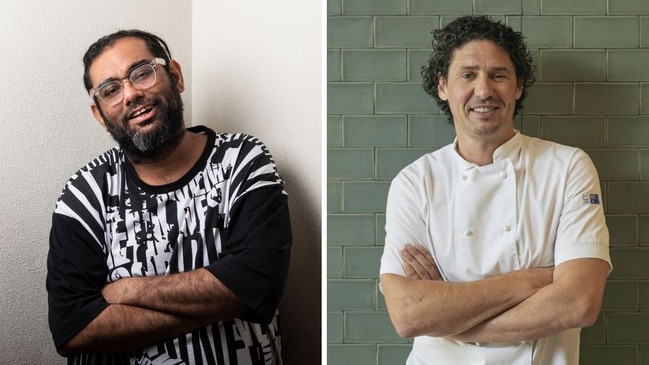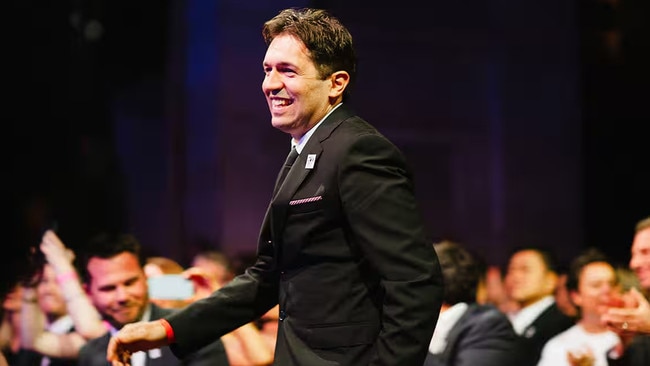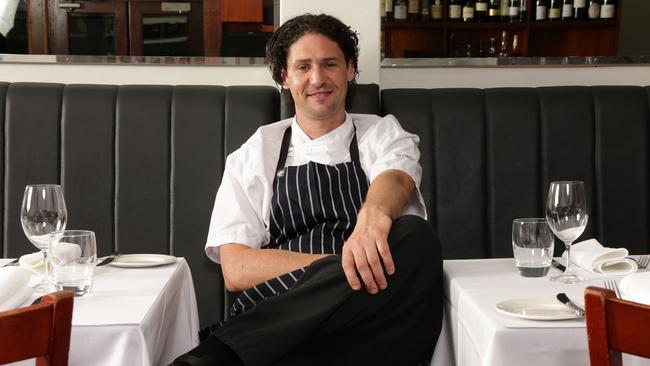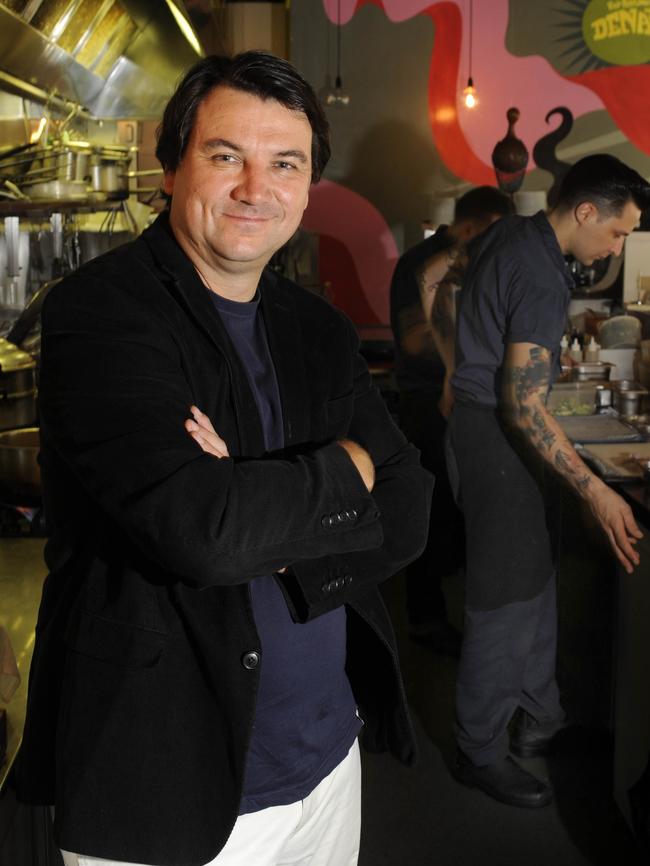‘It’s not about the food anymore’: chefs Gaggan Anand and Colin Fassnidge speak out against critics
Attica chef Ben Shewry has attracted big-name support for his evisceration of food critics and restaurant guides, including from one of the world’s most celebrated superchefs.

Chef Ben Shewry has found support at home and abroad for both his withering views on food critics and criticism, and his dismissal of the food media as a “feckless system built on hype”.
Restaurateur Gaggan Anand, the head chef at the eponymous Gaggan Anand in Bangkok, Thailand, and the recipient of two Michelin stars, was one of the first high-profile culinary figures to issue public support for the Attica chef.
When contacted by The Australian, the Indian chef, whose restaurant is ranked No. 9 on The World’s Best Restaurants list, said the critique system was broken everywhere.
“ (Shewry) is right. It’s not about the food anymore. It’s about spending money and time on marketing for these awards,” he said.
“(Some of) these awards have any 21-year-old come in to eat at 30 restaurants in a week and self-declare themselves to be a critic to their 200,000 social media followers. I’m not trying to please them. It’s complete crap.”
The Australian published an exclusive extract from Shewry’s book Uses for Obsession: A Chef’s Memoir earlier this week. In it he declared conflicts of interest abound in the food and hospitality industry, and many reviewers lacked the palate and expertise to give thoughtful and informed critiques on the dishes they were being served.
The Melbourne-based chef said publishers of restaurant guides had no understanding of the toll their judgments took on his profession: “We are the only business I can think of that gets reviewed by large media organisations, several times a year, for eternity.”

The piece elicited an extraordinary response from the local hospitality industry, among them was the celebrated Irish-Australian Colin Fassnidge, once a darling of the Sydney Morning Herald/The Age Good Food Guide and its ‘hats’ restaurant rating system.
Fassnidge was formerly the owner-chef of Four in Hand, a pub turned two-hatted diner in Sydney’s Paddington, and the one-hatted 4 Fourteen. At one time, Four in Hand was the only pub in Sydney to have received two hats from the Good Food Guide.
“They took one away after I did a refurbishment because they didn’t like the decor or the toilets or the cutlery. The next year, I did the same food I wanted and they gave me back the hat,” he said. “We were working 17 hours a day to maintain a hatted standard. I was anxious, (and) just trying not to go broke over a bad review.”
Fassnidge said Shewry’s views on the bona fides of critics, as well as his reflections on the role critics played in the restaurant industry, were shared by many.
“We all lived in the shadow of fear of those critics,” said Fassnidge, “We had the likes of Simon Thomsen, Terry Durack and Myffy Rigby, all of whom were not chefs but were judging chefs and closing down businesses.”
“The established [critics] were the worst. There was a time and place where they were top dogs. Now they’re all trying to be pro-hospitality, but they did a lot of harm.
“The way these f***ers worked is: if you open a brand new restaurant, they come in the second day when you’re still working out the kinks and they put your faults straight out to the public. They can destroy your restaurant in the first week.”
Fassnidge said critics “have tried to curtail” their negativity towards restaurants following the pandemic.
“We all knew how much bullsh** it all was, but (back then the critics) had the power, and everyone was afraid to speak out. You have to drink the Kool-Aid. If you don’t, you’re out.
“After Covid, they were giving out hats like they were Oprah Winfrey. It was like a backtrack on the years of damage they’d done. They’re trying to be all nice now, but for years they tore the industry apart. They should have to live with that.”

Fassnidge defended his television role as a “judge” on the Channel 7 program My Kitchen Rules: “When I’m on [My Kitchen Rules] you have people gunning for a big cash prize at the end. People apply to be judged. But restaurants don’t have a cash fund at the end. One flip-flop comment can close a business. It’s not television, it’s the real world.”
Head of Good Food Sarah Norris defended the role of established critics who she said offered a benchmark for diners, “and I would argue, also help raise standards of excellence within the industry”.
“Our reviewers’ primary responsibility is to the dining public, not to chefs. With money tighter than ever for most diners, users of the (Good Food) guide want to know where they should spend their dollars, and be able to trust those recommendations. That means whether it’s day two of a restaurant opening, or three years later.”
“Restaurants face criticism from the moment they open their doors, both from paid critics, and more importantly, from the dining public. Restaurateurs don’t discount meals while they’re working out the kinks, so they shouldn’t be immune from scrutiny.”
Ms Norris said during the pandemic and immediately following it, restaurants had struggled to find staff. As a result, guide editors asked reviewers to place less emphasis on service when critiquing restaurants. “But our scrutiny of other important factors such as food, atmosphere and value for money remained as robust as ever,” she said.

Former food critic Simon Thomsen was quick to correct Fassnidge – “I was a chef both in the UK and in Australia” – and insisted critics and chefs were “fellow travellers in the entertainment industry, carrying packs similarly weighed down by ego and single-mindedness, now complaining to anyone who’ll listen that our partner doesn’t understand us.”
“It all feels so Fatal Attraction. For a long time, the sex was great and now everyone’s cutting the heads off pets and boiling them.”
“Show me these destroyed restaurants. Name them. There’s a certain irony in the complaint generally coming from figures mired in a litany of success, not failure.”
He said there was no doubt a “fear of godlike critics” had abated in recent years as people found alternative sources for views on where to eat.
“For Ben, I think picking this fight, for whatever reason, is a sidetrack in an excellent book about his impressive career and achievements.”
Attica currently holds two Good Food Guide hats. The restaurant has also been featured on The World’s 50 Best Restaurants list.



To join the conversation, please log in. Don't have an account? Register
Join the conversation, you are commenting as Logout